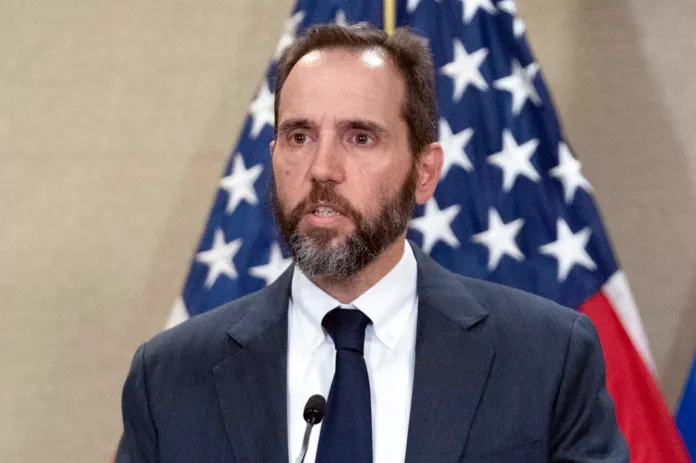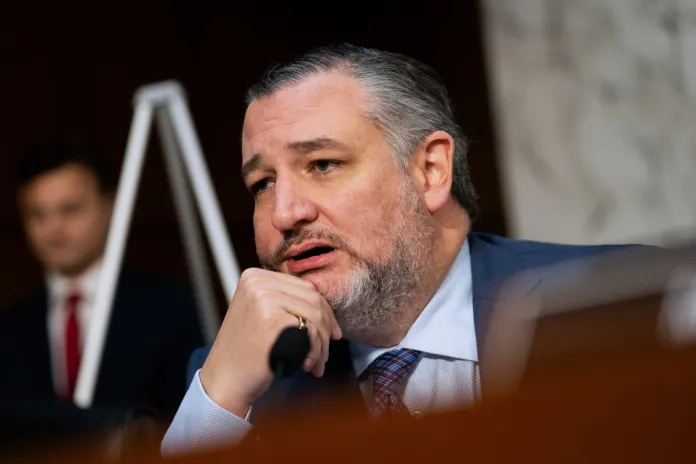Former special counsel Jack Smith issued nearly 200 subpoenas as part of the FBI’s sweeping Arctic Frost investigation into the 2020 election, targeting hundreds of Republicans in what GOP lawmakers now call one of the most politically intrusive spying expeditions in modern history.
The disclosures, provided by a whistleblower to Senate Judiciary Committee Chairman Chuck Grassley (R-IA) and released Wednesday, reveal that 197 subpoenas were sent to 34 individuals and 163 businesses. Those demands sought testimony, communications, and records connected to at least 430 Republican individuals and entities, including donor analytics, internal strategy, and contacts with government officials and major media outlets such as Fox News, CBS, Newsmax, and Sinclair.

The FBI also demanded communications with White House advisers such as Stephen Miller, Dan Scavino, Jared Kushner, and Lara Trump, as well as broad financial data tied to conservative causes.
Republican critics say the depth and scope of the requests reveal a political dragnet designed to surveil and intimidate the opposition. “Arctic Frost is Joe Biden’s Watergate,” said Sen. Ted Cruz (R-TX), calling it a political enemies list executed through the Justice Department. “This was an absolute and egregious abuse of power.”
Cruz: Smith blocked phone carriers from disclosing subpoenas
Cruz said he only discovered recently that Smith’s team had moved to collect his personal cell phone records from AT&T. According to disclosures provided to the Senate Judiciary Committee, Verizon notified investigators that at least 11 Republican lawmakers using that carrier were affected, including Cruz’s Senate office landline.

Cruz added that AT&T refused to turn over his personal records for a separate line he possessed, determining the request violated the Constitution’s Speech and Debate Clause. But when Smith went to court for a separate subpoena, U.S. District Judge James Boasberg barred AT&T from informing Cruz that the government was seeking his data, the Texas senator said. In an apparent court order referenced by Cruz, Boasberg claimed that notifying the senator would risk the “destruction of evidence” and pose a “serious jeopardy to the investigation.”
“There is precisely zero evidence to conclude that I am likely to destroy or tamper with evidence,” Cruz said. “This order is an abuse of power — a weaponized legal system.”
Cruz called for the House to begin impeachment proceedings against Boasberg, accusing the judge of aiding a partisan vendetta. He claimed that similar secrecy orders likely accompanied subpoenas targeting other senators, including Grassley and Sen. Lindsey Graham (R-SC).
Smith targeted a prominent conservative family
The subpoenas also reached deeply into mainstream conservative institutions, including groups connected to Ed Corrigan, a prominent Republican who leads the Conservative Partnership Institute, which supports Trump-aligned lawmakers and causes. Internal FBI emails previously showed agents were pursuing unverified tips that CPI was engaged in “civil war” activity, allegations Republicans say were baseless and politically motivated.
The whistleblower files show Smith’s team expanded that scrutiny to include Corrigan’s brother, Patrick, citing both siblings in subpoena requests involving the Conservative Policy Institute, the Conservative Policy Center, and the American Voting Rights Foundation. The records additionally corroborate that Smith demanded data from other major conservative groups, including Turning Point USA, the Republican Attorneys General Association, Save America PAC, and several state Republican parties.
Republicans say the breadth of data requests, from media engagement to grassroots fundraising strategies, was aimed not at solving crimes but at mapping the entire conservative ecosystem as Trump prepared his 2024 campaign.
An inquiry born under the FBI, supercharged by Jack Smith
Arctic Frost began inside the FBI in early 2022 under then-Director Christopher Wray and quickly grew after Attorney General Merrick Garland elevated the matter, appointing Smith special counsel in November of that year. The investigation ultimately formed the backbone of the four-count indictment against Trump stemming from his challenge to the 2020 election, but most individuals placed under scrutiny were never accused of wrongdoing.
Documents previously released by Grassley showed that phone metadata belonging to eight Republican senators and one House member was placed in restricted “Prohibited Access” files, limiting visibility even within the bureau.
Grassley: Fishing expedition with “partisan intent”
Grassley said the subpoena dragnet proves the probe was partisan from its inception.
“Arctic Frost was the vehicle by which partisan FBI agents and DOJ prosecutors could improperly investigate the entire Republican political apparatus,” Grassley said at a press conference with Sen. Ron Johnson (R-WI) and others. “Contrary to what Smith has said publicly, this was clearly a fishing expedition.”
Grassley said the public deserves to see evidence of what happened inside a Justice Department under former President Joe Biden that believed it “was justified [in] spying on their opponents in the legislature.” He argued that if the political parties were reversed, Democrats would demand consequences.
“We’re making these records public in the interest of transparency and so the American people can draw their own conclusions,” Grassley said.
